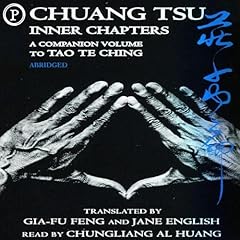
Lieh Tzu
No se pudo agregar al carrito
Add to Cart failed.
Error al Agregar a Lista de Deseos.
Error al eliminar de la lista de deseos.
Error al añadir a tu biblioteca
Error al seguir el podcast
Error al dejar de seguir el podcast
 Exclusivo para miembros Prime: ¿Nuevo en Audible? Obtén 2 audiolibros gratis con tu prueba.
Exclusivo para miembros Prime: ¿Nuevo en Audible? Obtén 2 audiolibros gratis con tu prueba.Compra ahora por $13.21
-
Narrado por:
-
Charles Featherstone
-
De:
-
Lieh Tzu
-
Lionel Giles
One of the four central works in Daoism. The Lie-Tzu, or Liezi, was originally thought to have been composed in the same period as the Dao and Zhuang Zi, around the 5th century BCE. However, it is now believed to have been compiled nearly a thousand years later, around 400 CE.
Lionel Giles, in fact, was one of the first to call out the Lieh Tzu’s suspicious origins, saying “scholars […] seem to have enjoyed nothing so much as forging, if not the whole, at any rate portions, of the works of ancient authors. Someone even produced a treatise under the name of Lieh Tzu, a philosopher mentioned by Chuang Tzu, not seeing that the individual in question was a creation of Chuang Tzu's brain!”
Around 700 CE, it was given a new honorific title, the Chongxu zhenjing or Classic of the Perfect Emptiness, and designated a Daoist classic. The triad of Tao Te Ching, Zhuang Zi, and Lieh Tzu makes a certain logical sense, as each work contrasts the other two. The Dao is deeply abstract, and the Zhuang Zi filled with ethical conundrums and nonsensical stories. The Lieh Tzu is a much more practical work, turning the philosophy into a much more workable framework for thought and action.
Most of the chapters are named for famous Chinese characters from history or mythology, and many of the stories are continuations or different perspectives on tales and characters in the Zhuang Zi.
In this version, Chapter 7 is excluded. This chapter was not translated by Giles, and occasions a great deal of controversy. It is written in a very different voice and perspective to the other chapters, such that some have described it as ‘hedonistic’ and ‘negative Daoism’. Others have claimed that it must have been written before the author even discovered Daoism.
Public Domain (P)2023 Brimir & BlainnLos oyentes también disfrutaron:










